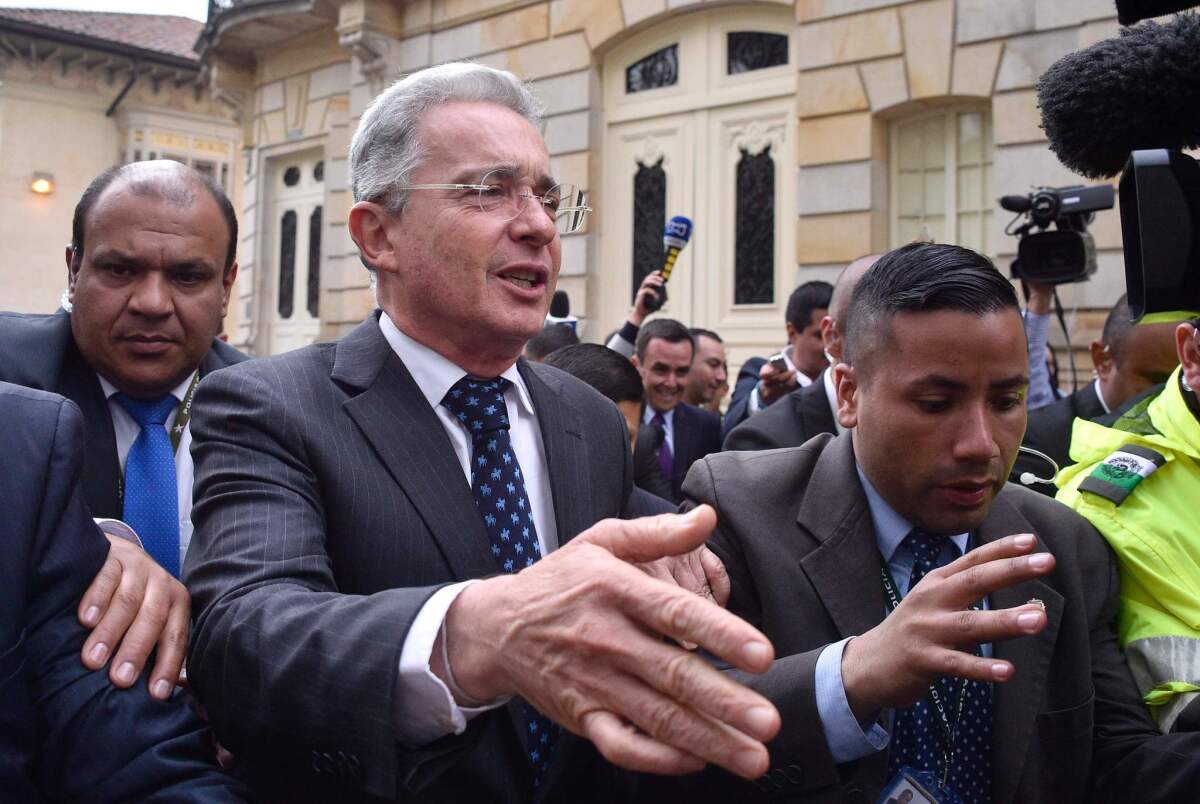Colombian president meets with leader of campaign that defeated peace deal with FARC

- Share via
Reporting from BOGOTA, Colombia — Three days after voters rejected an accord to end Colombia’s long-running civil war, President Juan Manuel Santos met Wednesday with his predecessor Alvaro Uribe, the leading opponent of the deal, and agreed to begin talks to reshape the agreement.
The government and the country’s largest rebel group, the Revolutionary Armed Forces of Colombia, better known as the FARC, signed the deal last week in a ceremony attended by several world leaders.
But in a referendum Sunday, voters defied every national poll and rejected the deal. Led by Uribe, the “no” campaign prevailed by less than half a percentage point with 50.2% of the vote.
Once political allies, Santos and Uribe had become bitter adversaries and until Wednesday had not spoken in several years.
In a brief statement to reporters as he left the presidential mansion, Uribe said both he and Santos would appoint representatives to begin talks Thursday.
The former president, who is now a senator, said that his supporters had a “unanimous desire for peace” but that any peace agreement must include trials to hold rebels accountable for crimes against humanity.
Under the deal in its current form, demobilized rebels would face a maximum of eight years of house arrest if they confess to crimes and ask forgiveness.
Santos had staked his political future on implementing a peace agreement with broad public support.
In a brief televised address after the meeting, he appeared upbeat and said he will consider all “proposals for adjustments” to the accord.
“Peace is near and we will achieve it,” he said. “In this moment, we should leave aside antagonism and grudges and unite as a nation for the common good.”
He also said that 300 United Nations observers sent to Colombia to help in the disarmament process will remain in the country “for a while.”
Whatever Santos and Uribe negotiate will hardly matter if the rebels don’t accept it. Negotiating the deal took four years.
A cease-fire between the government and the rebels has been in effect since August and will remain so at least through the end of October, Defense Minister Luis Carlos Villegas said Wednesday.
The 52-year-old conflict has cost 220,000 lives and displaced 7 million people.
Kraul is a special correspondent.
More to Read
Sign up for Essential California
The most important California stories and recommendations in your inbox every morning.
You may occasionally receive promotional content from the Los Angeles Times.










